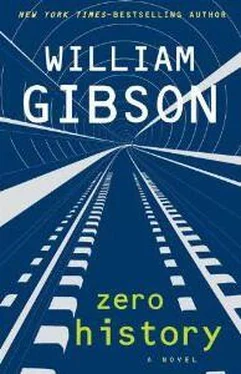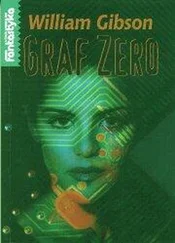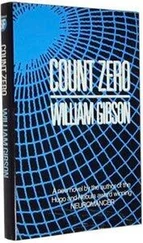William Gibson - Zero history
Здесь есть возможность читать онлайн «William Gibson - Zero history» весь текст электронной книги совершенно бесплатно (целиком полную версию без сокращений). В некоторых случаях можно слушать аудио, скачать через торрент в формате fb2 и присутствует краткое содержание. Жанр: Фантастика и фэнтези, на чешском языке. Описание произведения, (предисловие) а так же отзывы посетителей доступны на портале библиотеки ЛибКат.
- Название:Zero history
- Автор:
- Жанр:
- Год:неизвестен
- ISBN:нет данных
- Рейтинг книги:4 / 5. Голосов: 1
-
Избранное:Добавить в избранное
- Отзывы:
-
Ваша оценка:
- 80
- 1
- 2
- 3
- 4
- 5
Zero history: краткое содержание, описание и аннотация
Предлагаем к чтению аннотацию, описание, краткое содержание или предисловие (зависит от того, что написал сам автор книги «Zero history»). Если вы не нашли необходимую информацию о книге — напишите в комментариях, мы постараемся отыскать её.
Zero history — читать онлайн бесплатно полную книгу (весь текст) целиком
Ниже представлен текст книги, разбитый по страницам. Система сохранения места последней прочитанной страницы, позволяет с удобством читать онлайн бесплатно книгу «Zero history», без необходимости каждый раз заново искать на чём Вы остановились. Поставьте закладку, и сможете в любой момент перейти на страницу, на которой закончили чтение.
Интервал:
Закладка:
The Neo rang, from a different pocket. He brought it out. It looked even uglier than usual.
“Yes?”
“Just checking your phone,” Sleight said, unconvincingly. “We’re having trouble with the whole system.” Sleight had always spoken of the Neos as a system, but Milgrim had met no one else, other than Sleight, who had one.
“Seems to be working,” Milgrim said.
“How are things?”
Sleight had never made it a secret that he was able to track Milgrim with the Neo, but only referred to it obliquely, if at all. The subtext, now, being that he knew Milgrim was in Paris. Knew that Milgrim was in this courtyard of this building, perhaps, given that extra overlay of Russian GPS.
When their relationship had begun, Milgrim had been unwilling to question anything. Sleight had set the terms, in every way, and so it had been.
“It’s raining,” said Milgrim, looking up at blue sky, bright clouds.
A silence lengthened.
He was trying to force Sleight to admit to knowing his location, but he didn’t know why. It was something to do with the anger he’d felt, was probably still feeling. Was that a good thing?
“How’s New York?” Milgrim asked, losing his nerve.
“Toronto,” said Sleight, “getting hot. See you.” He was gone.
Milgrim looked at the Neo. Something was unfolding within him. Like a brochure, he thought, rather than the butterfly he imagined to be the more common image. An unpleasant brochure, the sort that lays out symptoms all too clearly.
Why had Sleight actually called? Had he really needed to check Milgrim’s phone? Did a brief moment of live voice provide Sleight with the opportunity to manipulate the Neo in some way that he couldn’t, otherwise?
If Milgrim spoke now, he wondered for the very first time, would Sleight hear him?
It suddenly seemed entirely likely to him that Sleight could.
He sat back in his white-enameled aluminum chair, aware again of that emotion he supposed was anger. He could feel the Faraday pouch, containing his passport, slung on its cord, under his shirt. Blocking radio waves. Preventing the RFID in his U.S. passport from being read.
He looked at the Neo.
Without consciously making any decision, he undid the top button of his shirt, fished the pouch out, opened it, and slid the Neo in with his passport. He tucked it back into his shirt and buttoned up.
The pouch was bulkier now, visible under his shirt.
He finished his espresso, which had cooled, and was bitter, and left some coins on the small square receipt. He stood up, buttoned his jacket over the slight bulge of the pouch, and reentered the Salon du Vintage. Still scanning for Foley, who for all he knew had returned.
He took his time, making his way up the stairs, and then stood for a while, looking up at the blowup of Hollis’s poster. Then he undid his top button again, drew out the pouch, opened it, and removed the Neo, which rang immediately.
“Hello?” As he tucked the pouch back in with his free hand.
“Were you on an elevator?”
“It was filled with Japanese girls,” Milgrim said, watching one pass. “Only three floors, here, but I couldn’t get off.”
“Just checking,” said Sleight, neutrally, and hung up.
Milgrim looked at the Neo, Sleight’s extension, wondering for the first time if it was really off when he turned it off. Perhaps it needed its batteries removed for that. Though, come to think it, Sleight forbade that. Or its two cards, which Milgrim was also forbidden to remove.
Sleight had noticed it going into the Faraday pouch. Milgrim had been briefly invisible, as he’d sometimes gathered he was in elevators, for similar reasons.
Given everything else Sleight had said he could do with the Neo, having it function as a bug actually seemed like a very modest capacity. And it would help explain why they’d bothered with the thing at all, cranky as it was. He’d been carrying around a wire. Would Bigend have known about that? Milgrim wondered.
Sleight had given him the Neo on their flight from Basel to London, at the end of Milgrim’s treatment. He’d had it with him constantly, since then. Except, he remembered, yesterday, when Sleight had ordered him to leave it in his room. When Winnie had taken his picture. When he’d gone to Blue Ant to tell Bigend about that, and Bigend had suggested he no longer trusted Sleight. When he’d gone to the department store to have lunch with Hollis, then back to his hotel, where Winnie had been waiting. So Sleight had missed all of that, missed it because, if he was telling the truth, the company that made the Neo had gone bankrupt. “Lucky,” said Milgrim, then winced, imagining Sleight, Bluetoothed, somewhere, hearing him. But if Foley was Sleight’s, which was only one possibility, how had Foley known to find them at the department store? Perhaps he was following Hollis instead? But then, he reminded himself, Foley was someone else who had his picture on Winnie’s wall.
The Neo rang in his hand.
“Yes?”
“Where are you?” Hollis. “I saw you walk past.”
“Can you meet me? By the entrance, downstairs.”
“Are you up here?”
“Downstairs.”
“On my way,” she said.
“Good,” he said, and clicked off. Resisting the impulse to whistle for Sleight’s benefit, he put his phone in his jacket pocket, then removed his jacket, wrapped it several times around the phone, tucked the resulting bundle under his arm, and headed for the stairs.
25. TINFOIL
Hollis found Milgrim giving his jacket to the Japanese girl at the bag check. “I’m finished,” she said. “We can go now, if you’re ready.”
Milgrim turned, took her hand, and led her away from the bag check.
“Is something wrong?”
“My phone,” said Milgrim, releasing her hand on the far side of the entranceway. “They’re listening through it.”
Tinfoil hats, people whose fillings broadcast thought-control messages. “ ‘They’ who?”
“Sleight. Bigend doesn’t trust him.”
“Neither do I.” She never had. And now that she thought of Sleight, Milgrim didn’t sound quite as automatically crazy. That was the trouble with Bigendland. People did things like that. The ones like Sleight did, anyway. Then again, Milgrim might just be crazy.
Or on drugs. What if he’d slipped? Gone back on whatever it was they’d gotten him off of in Switzerland? Where was the semi-absent character she’d met over tapas? He looked worked up, a little sweaty, maybe angry about something. He looked more like someone in particular, anyway, she realized, and that was what had been missing before. The lack of that was what had made him simultaneously so peculiar and so forgettable. She was looking into the eyes of someone experiencing the anxiety of sudden arrival. But Milgrim’s arrival, she somehow knew, was from within. But all because he thought he’d seen someone? Though someone, she reminded herself, she’d thought she’d seen too, in the basement. “I saw him,” she said. “Maybe.”
“Where?” Milgrim stepped back, allowing a pair of spryly geriatric American men to pass, headed for the stairs.
They looked to Hollis like aged hair-metal rockers in expensive mufti, and seemed to be talking golf. Did they collect vintage Chanel? “Downstairs,” she said. “I pushed the wrong button in the elevator. Then he came down the stairs. I think.”
“What did you do?”
“Got back in the elevator. Up. Didn’t see him again, but I was busy.”
“He’s here,” Milgrim said.
“You saw him?”
“I took his picture. Pamela wants it. I could show you, but the card’s not in my camera.”
“He’s here now?” She looked around.
“I saw him go out,” glancing toward the entrance. “Doesn’t mean he hasn’t come back.”
Читать дальшеИнтервал:
Закладка:
Похожие книги на «Zero history»
Представляем Вашему вниманию похожие книги на «Zero history» списком для выбора. Мы отобрали схожую по названию и смыслу литературу в надежде предоставить читателям больше вариантов отыскать новые, интересные, ещё непрочитанные произведения.
Обсуждение, отзывы о книге «Zero history» и просто собственные мнения читателей. Оставьте ваши комментарии, напишите, что Вы думаете о произведении, его смысле или главных героях. Укажите что конкретно понравилось, а что нет, и почему Вы так считаете.











